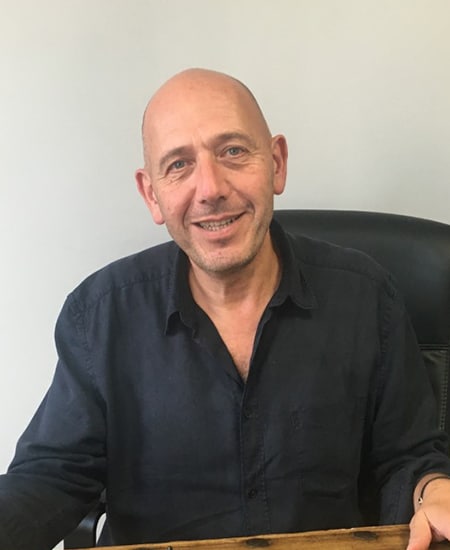While the annual meetings of whistleblowers at the Maison des Sciences de l’Homme, in Plaine Saint-Denis (93) have just concluded, Actu-Juridique met the lawyer Me Jérôme Karsenti, partner of the BKL firm, registered at the Bar of Créteil (94), specialized in their defense, both individually and collectively. A logical continuation given his commitment alongside the Anticor association to bring the voice of citizens against corruption into the courtroom for fifteen years.
Legal news: the concept of “whistleblower” appeared in France in 1999. What exactly does the defense of this new type of litigant consist of?
Girolamo Karsenti: I am currently defending an experienced insurer who denounces the storage conditions of the fertilizers, and the risk of explosion that entails; a director of financial affairs for a psychiatric patients’ association; a trade unionist who denounces the misappropriation of government funds from her maternity hospital; elected officials who point out the turpitudes of their municipalities… More often than not, these are people who, faced with a collective logic, and in a totally disinterested way, say “no”! Because they cannot accept what, for the rest of those around them, has become habitual.
By defending this type of client, we are faced with new legal problems. A new, more protective law for whistleblowers has been in force since September (L. n. 2022-401, 21 March 2022, aimed at improving the protection of whistleblowers), deriving from the transposition of a European directive. While this law was supposed to allow those who obtain whistleblower status to have their attorneys’ fees funded by the company or institution suing them, I realized that this coverage didn’t just apply from the whistleblower arraignment . At best, he can hope to be reimbursed once the procedures are completed, which was not the spirit of the law. We must therefore constantly weigh in to improve the law. I also fought, as a former member of the National Bar Council and as a consultant to about thirty associations for the protection of the general interest, against the law on professional secrecy, which can be used by companies to limit journalists’ freedom of expression. Or even opposing the development of transactional justice. The “judicial conventions of public interest” (CJIP) or the “companies on prior admission of guilt” (CRPC) give the feeling that there is a form of pact with justice that goes so far as to prolong corruption. Thus, in exchange for the payment by Airbus of 2.1 billion euros to the French state, as part of a CJIP, the National Finance Prosecutor closed the investigation opened into the irregularities in the aircraft sales contracts, saving the company a lawsuit and the criminal record of the legal entity that is the company, which can continue to operate on foreign markets. It also deprives society of the educational virtues of a process, which exists to say something to public opinion.
Actu-Juridique: What was the driving force behind this committed practice of your profession?
Girolamo Karsenti: In cases of corruption, the defense of whistleblowers is a way of recalling the equality of all before the law, a fundamental principle of the Republic. However, I am the son of a Jew from Oran who had a wholly romantic vision of republican France. As a tax inspector, he raised me with lessons on tax consensus, the importance of public finance, redistribution and solidarity. Anticor was born in 2003, only a few months after Jean-Marie Le Pen’s arrival in the presidential ballot on April 21, 2002, which represented a real trauma for me, my mother was a child hidden during the Holocaust., and very soon I was an activist of SOS Racisme and the Socialist Party. This result was in my eyes the result of a rejection of politics, partly linked to the fact that a select few cast contempt on all representatives of the people. Anticor was therefore originally an association of elected officials who denounced infringements of the law by their peers, to remind us that politicians were not above the law. By doing so, contrary to the accusations of populism that may have been leveled at us, we are advancing the Republic. Let’s remember the virtue of politics and the defense of the general interest, let’s show that politics can save democracy!
Actu-Juridique: What has the presence of Anticor in court changed?
Girolamo Karsenti: Until recently, corruption and misuse of public funds were not a problem in France. No one criticized, during the Mitterrand years, the fact that his daughter and mistress were supported by the Republic. Things started to change when Anticor first filed suit in 2009, in the case Francois Perol. This deputy secretary of the Elysee had piloted the merger of two banks, which he then took over as head. He had caused quite a stir, but no one had taken the matter to court. Him anticor he did it when he had no chance to see the judge recognize any ability to act in justice. This was the beginning of media coverage of him, because at the time the criminal complaint still carried a heavy symbolic charge.
In September 2011, the trial of Jacques Chirac, accused of the fictitious works of the Paris City Council, was repeated. The prosecution, led by prosecutor Marin, asks for his release while the victim, the Paris City Council, compromises with the defendant. There are 23 lawyers to defend the various defendants. And I find myself quite lonely taking on the role of prosecutor. I suffered outright hazing from the other lawyers, who described me as a lawyer from the suburbs – I was later registered in the Créteil register. But at that moment something else was at stake: in November 2010, a sentence of the Court of Cassation recognized the admissibility of the Transparency International association in the so-called “illegal” case, in the name of the fact that violations of probity achieve the aim social prosecuted by the association, pursuant to article 2 of the penal code. This is a central issue, because none of its paragraphs provides that anti-corruption associations can bring civil action. We want to push our lead during the Chirac trial, and get Anticor admissible, in the name of the same argument. The president of the court ends up declaring us inadmissible, not on the merits, but because Anticor was born in 2003, and therefore the facts predate the damage that the association could have suffered. This trial is still a date, because Jacques Chirac is sentenced to two years in prison with suspension. Sentencing a politician to prison is no longer taboo. After him, Giaccobi, Guérini, Dassault, Balkany, will take previously unthinkable measures.
Actu-Juridique: in 2013, the government recognized the legitimacy of anti-corruption associations to bring civil suits in proceedings relating to violations of fairness. What changes?
Girolamo Karsenti: From 2006 to 2013 we exerted pressure on all political parties to obtain the creation of a new paragraph of article 2 of the penal code which would guarantee anti-corruption associations the ability to take legal action and therefore to bring civil action. On December 8, 2013, the adoption of article 2.23 granted this possibility to associations with the approval of the Keeper of Seals. It was granted in 2015 to Transparency International, Sherpa and Anticor. From there, Anticor enters a large number of cases. We form a civil party in the trial of Paul Giaccobi, president of CD Haute-Corse, for misappropriation of public funds, in the trial of Serge Dassault, accused of buying votes during the 2009 and 2010 municipal elections, we denounce the irregularities that pollute the public-private contract signed for the construction of the large Stade de Nice. We are also a civil party in the lawsuit Karachi, and we emerge from the limbo of the Elysée polls, which led to the prison sentence of Claude Guéant. Most recently, we filed an illegal interest levy complaint against Alexis Kohler and Éric Dupond-Moretti. Our strategy is to bring us civil suits in cases where we bring something different, where prosecution isn’t going, or where cases appear to be stalled. Before 2013, we were only involved in four or five dossiers. Since 2013 our impact is considerable, article 2.23 allows us to blow up buried files.
Actu-Juridique: Did you have the feeling, through your action, that you had reduced the problem of corruption in France in fifteen years?
Girolamo Karsenti: In addition to this article of law, the creation of the National Finance Prosecutor’s Office at the end ofCauzac case, brought a real breath of fresh air to justice. The PNF had to prove, prove its independence, and it did it right with business Fill, rug, Sarkozy. In my opinion we have made the country progress on issues of political correctness, which are not a problem of “moralization”, but a real legal, ethical and political question. However, with the development of negotiated justice, as well as a form of “normalization” of the PNF, it becomes urgent that a profound reform of justice finally promotes the independence of the prosecution from political power. This historical node is deleterious. Furthermore, deep and endemic corruption continues. Conflict of interest issues are at the heart of how our democracy works, as can be seen with the role of consultancies and lobbies in the political game, the porosity between public and private. This situation requires the strengthening of democratic controls, the prohibition of revolving doors, the legalization of associative appeals at the level of private lobbying. The state, public services, checks and balances must be protected. My new forte is that of the commons, and their protection against commercial logic. Because corruption affects health, food, damages the planet and the human body, and we don’t attack it enough.


